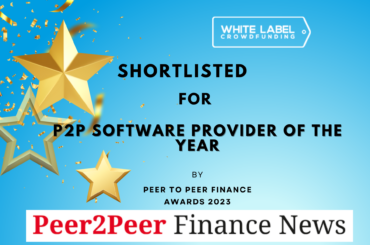 Carlota Montoro is our Human Resources manager and is based in Madrid. She has worked with the company for almost two years, since she began in July 2015. Carlota is responsible for recruiting and training new members of the team; streamlining work processes; monitoring progress; and ensuring clear communication between management and employees.
Carlota Montoro is our Human Resources manager and is based in Madrid. She has worked with the company for almost two years, since she began in July 2015. Carlota is responsible for recruiting and training new members of the team; streamlining work processes; monitoring progress; and ensuring clear communication between management and employees.
An entrepreneur in her own right, Carlota is instrumental in the evolution of the company, making sure that we hire the best people for the job: hard-working, dedicated individuals with intricate knowledge of their field who become part of our team.
We spoke to Carlota to find out more about her role, her experience in the FinTech industry, and how important she believes human resources to be.
Carlota, thank you for talking to us today. Tell us a bit about your position at WLCF.
I am responsible for the recruitment and training of all our members, as well as helping our founder and CEO, Daniel Rajkumar to align the strategy of the company with the HR strategy.
How would you define the company philosophy and culture?
That’s a difficult question! We are a young organisation with a very diverse workforce and it’s difficult to define from an internal point of view. Being concise, I would say that we like challenges. We don’t go for the easy option or take shortcuts. We know that things could have been easier had we made other business decisions, but we like to keep our mind open to new opportunities and learning experiences.
Can you explain the WLCF recruitment process to us?
 Being a small, young company, it is a complicated process, for two main reasons. Attracting candidates can be tricky, and the type of talent we look for is a difficult combination. Apart from that, the rest is standard practice: we analyse our needs, attract candidates and start the selection process. This usually involves a first interview conducted via Skype, knowledge tests if necessary, and then a second interview with the hiring managers.
Being a small, young company, it is a complicated process, for two main reasons. Attracting candidates can be tricky, and the type of talent we look for is a difficult combination. Apart from that, the rest is standard practice: we analyse our needs, attract candidates and start the selection process. This usually involves a first interview conducted via Skype, knowledge tests if necessary, and then a second interview with the hiring managers.
Are there any qualities you look for in all potential employees, regardless of the position they’re applying for?
Usually we look for a combination of soft skills across the different roles. We want people who are quick learners, and who show curiosity, a knowledge of technology – important even for those who don’t work in the technical side of things – and a basic financial understanding. We also require people to be independent and self-motivated, as most of the team works remotely, and with demonstrable English skills. We work with international people, myself included, and it is important that we have a lingua franca that we can all use to communicate.
Do you think having a diverse team can be advantageous? If so, how?
 Of course. It is not always easy, but as I said, we like challenges! There are many theories around this, and studies that prove the advantages of diversity. It is true that it leads to more work, as you have to take into consideration many different ways of considering the smallest thing. However, that is also the main advantage from my point of view.
Of course. It is not always easy, but as I said, we like challenges! There are many theories around this, and studies that prove the advantages of diversity. It is true that it leads to more work, as you have to take into consideration many different ways of considering the smallest thing. However, that is also the main advantage from my point of view.
Every customer is different, and most importantly, different to us. Having a diverse team helps us to be more open to different ideas and ways of expecting things. Diversity is not only about origin, which I believe we cover well working with people from El Salvador to Philippines, but also about age, religion, culture and background, among other characteristics. These other characteristics can be the most advantageous.
Having people in the same company who have grown up in different cultures and/or come from different backgrounds makes the services we offer as a company much richer.
Porter (1985) explains how there are two major business strategies: one being competitive with your prices and the other one, being different. Most businesses in Europe base their strategy in adding something different. How are you going to be different if you are all the same?
 As an example, speaking about age diversity, the CIPD published a survey report in August 2014. The key benefit of an age-diverse workforce for SMEs seems to be that of knowledge-sharing – and LMO employers who employ 250+ employees tend to agree with this: knowledge-sharing (56%), improved problem-solving (34%) and enhanced customer service (21%). Unfortunately, almost half (46%) of SMEs surveyed report that their organisation has no measures in place to ensure it has access to enough skilled and diverse people of all ages.
As an example, speaking about age diversity, the CIPD published a survey report in August 2014. The key benefit of an age-diverse workforce for SMEs seems to be that of knowledge-sharing – and LMO employers who employ 250+ employees tend to agree with this: knowledge-sharing (56%), improved problem-solving (34%) and enhanced customer service (21%). Unfortunately, almost half (46%) of SMEs surveyed report that their organisation has no measures in place to ensure it has access to enough skilled and diverse people of all ages.
I believe knowledge-sharing is not only a benefit of age diversity, but also of all the other eight protected characteristics in the UK law. It brings different ideas; when you work in the office with people who don’t challenge what you do, you will end up being outdated and most probably out of the market.
Diversity helps differentiate you from other companies, as I believe as a company, you are your talent.
When recruiting for a FinTech company, are you aware of the industry’s gender imbalance?
Of course, it is very obvious, not just when you see the imbalance within the companies in the industry, but also in terms of the CVs that we receive. For example, we have recently been recruiting for two roles: one technical and the other for customer service.
Of the applications we received for the Customer Service role, through a general recruitment website, only 25% were from women. For the technical position, this number dropped to 10%. This is a perfect example of how unbalanced the market is.
 We have to make a real effort to push for a more balanced workforce in this sense. We are lucky in this sense; our company is 50% female; including our most experienced project manager, our account manager and the legal manager, some of the most important roles for the company. However, I am aware that this is not the standard in our industry.
We have to make a real effort to push for a more balanced workforce in this sense. We are lucky in this sense; our company is 50% female; including our most experienced project manager, our account manager and the legal manager, some of the most important roles for the company. However, I am aware that this is not the standard in our industry.
How important do you think human resources is in the modern working world?
Not as important as it should be, that is for sure. There are numerous posts and a lot of communication around leaders, and how to motivate your employees, but in the end, many companies keep the same old mentality with a more up-to-date employee handbook.
The awareness of companies and managers around human resources has increased. However, it is also true that some managers still see it just as a social thing, just “keeping your employees happy” with no other reason. What they don’t see is that is the best way to have a more efficient company. And that means money!
What does your normal day involve?
There is no normal day working at WLCF. I know that sounds like a typical answer, but there are many different things that can be happening at the same time. Recruitment is one of the most time-consuming activities as we look for very specific requirements and analysing those competencies can take time.
However, I firmly believe that recruitment is only a small piece in the puzzle, and managing our existing members or making sure that our newest members of the team are taken care of is important. Doing that while you work with people in different time zones keeps you busy!
What do you enjoy about what you do?
Speaking to people from everywhere in the globe and getting to work around policies and procedures that can work not only for the company as a tool but also for the different cultures we work with. It’s not easy to make something that is effective and motivational for everyone while not adding a lot of extra administrative work for us. It’s not easy, but that’s the fun part.














